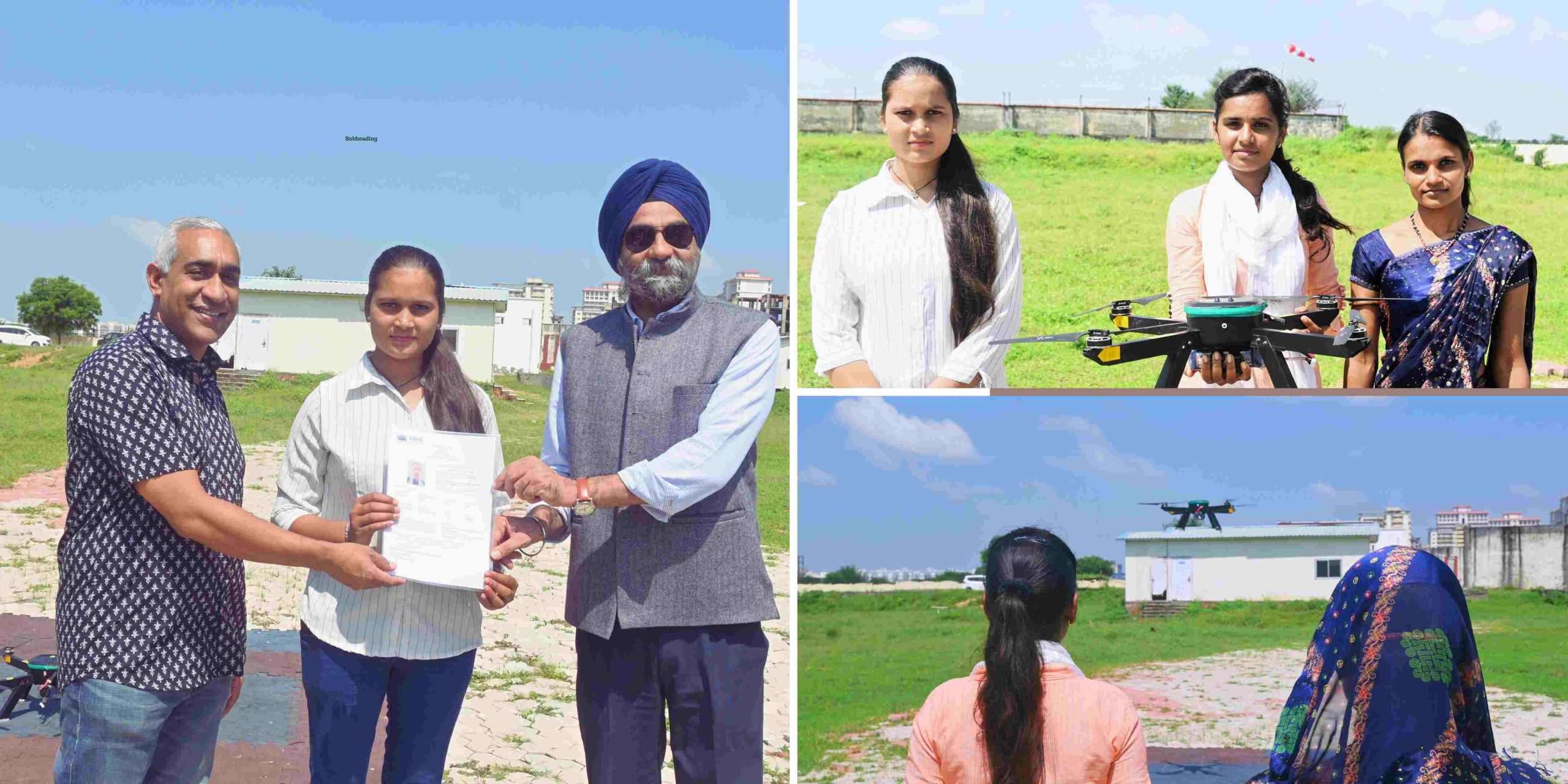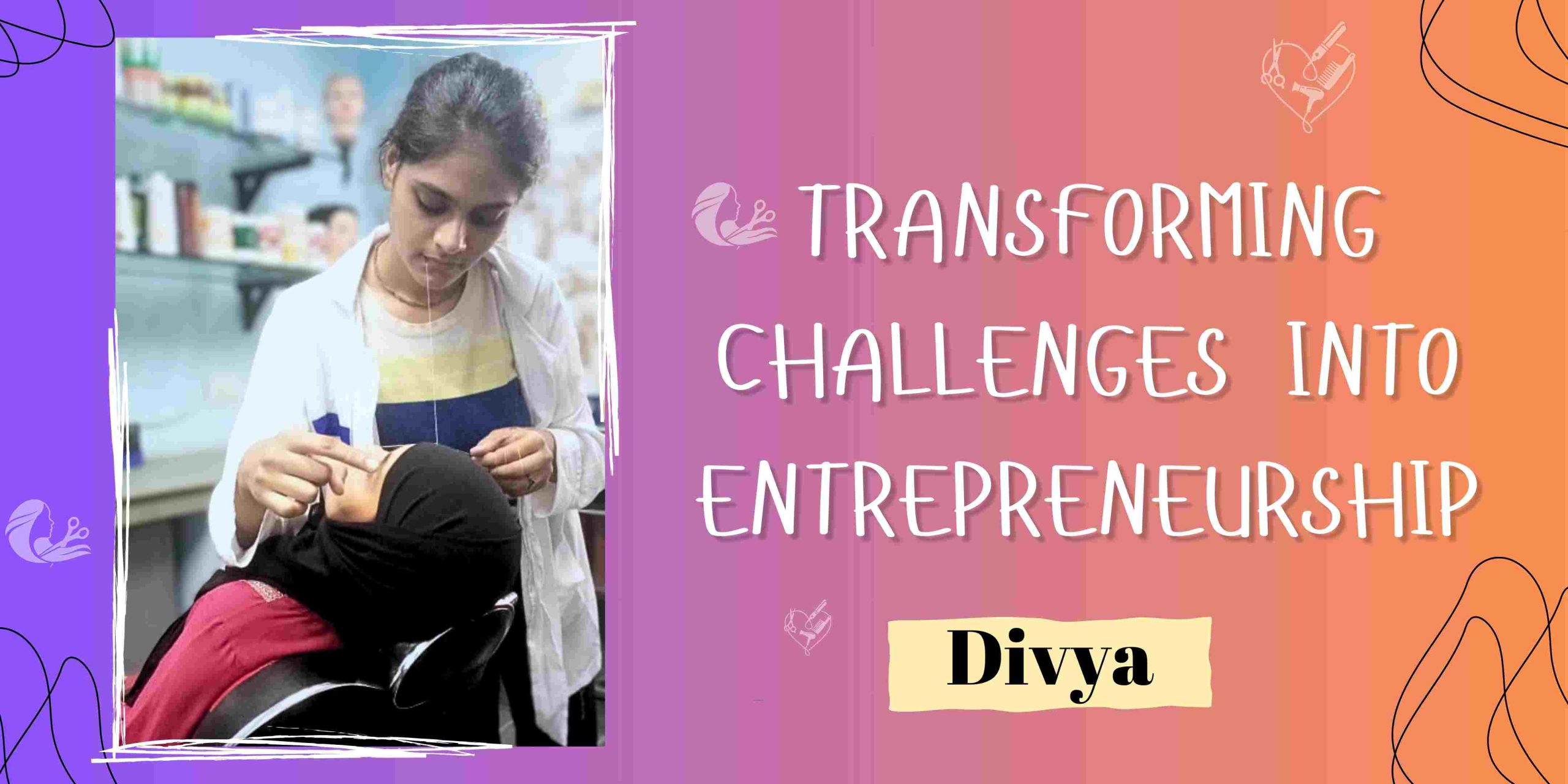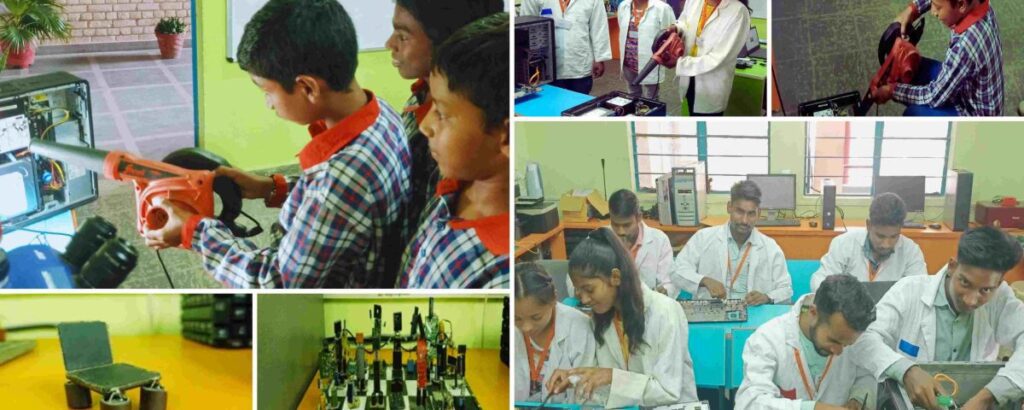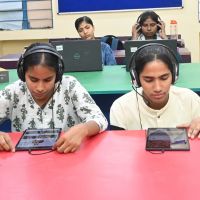At Literacy India, we’re all about shaking things up – from recycling e-waste to empowering organic farmers with drone technology! Here’s a quick flight through our latest success stories, where students are literally cleaning up the world, one device at a time, and soaring into their future careers.
Students Get Hands-On: Learning to Clean Electronics While Caring for the Planet
At Literacy India, we believe that education goes beyond textbooks, which is why our Bajghera campus was abuzz with activity as students embraced a unique initiative: learning how to clean and care for their electronic devices—an essential life skill often overlooked in traditional schooling. As part of World Cleanup Day, tech-savvy trainees embarked on a dual mission of digital hygiene and environmental responsibility. The day began with a hands-on workshop community empowerment programs where students learned how to dismantle and repurpose old electronics. Trainers demonstrated not only how to clean devices inside out for optimal performance but also how to give them new life in surprising ways. The buzz wasn’t just about wiping screens and dusting off keyboards. Armed with screwdrivers and a creative mindset, students disassembled outdated gadgets, exploring their inner workings and learning about components that could be reused. Broken hard drives were transformed into eco-friendly art projects, outdated monitors became chic furniture pieces, and obsolete circuit boards were repurposed into educational kits for younger students. The day proved that one person’s trash could indeed be another’s treasure, or in this case – tech treasure! But the event wasn’t just about e-waste recycling. Post-COVID distractions have made it easy to overlook device maintenance, yet students were reminded that keeping their gadgets in tip-top shape is essential for longevity and performance. Trainers explained how regular cleaning prevents overheating and increases the lifespan of devices, making it not only a sustainable habit but also an economical one. The event gave students the opportunity to see e-waste not as a problem but as a potential resource – reinforcing the importance of sustainability in the digital age. It was a fitting way to celebrate World Cleanup Day, and more importantly, a timely ‘reboot’ for students to refocus on the power of a clean, efficient, and responsible digital ecosystem.
From Kitchen Gardening to Flying Drones: The Journey of Ram Sila Bai – Soil to Skies

Meet Ram Sila Bai, a determined woman from Jatava village in Rajasthan’s Jhalawar district. After completing her 12th grade, she settled into the rhythms of married life and farming. But in 2021, her life took a new direction when she encountered Literacy India, an organization devoted to empowering rural communities, especially women, through sustainable practices & community empowerment programs.
The Journey into Organic Farming
Ram Sila Bai’s path to transformation began with the Krishi Sakhi Program, a kitchen gardening initiative by Literacy India aimed at integrating sustainability into rural households. Through hands-on training in organic fertilizer creation, she discovered a passion for eco-friendly farming methods.
Equipped with her newfound skills, she transformed her 2 bighas of land. The impact? Healthier crops, enriched soil, and a significant reduction in the use of chemical fertilizers—a small-scale green revolution in her own backyard.
Taking Flight: Drone Technology in Farming
Now, as an aspiring Drone Didi, Ram Sila is gearing up for the next leap in her journey. Drone technology, integrated into her farming practices, promises to elevate productivity and efficiency while keeping sustainability at the core. Her journey from the soil to the skies showcases her leadership in blending traditional farming with modern solutions, positioning her at the forefront of sustainable agriculture.
Literacy India’s Initiative in Jhalawar
Since 2011, Literacy India has been nurturing change in Jhalawar, starting with just seven farmers and now reaching over 1,200 farmers across more than 70 villages. The project targets small-scale, low-income farmers, helping them improve crop yields and secure sustainable livelihoods. Over 100 women have formed Krishi Sakhi groups across six villages, demonstrating the power of collaboration in driving sustainable change. Before Literacy India’s intervention, many farmers were stuck in a cycle of seasonal farming, heavily dependent on chemical fertilizers. The organization introduced a transformative shift toward natural farming methods, minimizing chemical inputs and promoting kitchen gardens. Regular farmers’ meetings, seed provisions, and expert training created the foundation for success. Organic fertilizer pits, created from cow dung, urine, and vegetable waste, have revitalized unproductive lands, significantly reducing dependence on chemical fertilizers and boosting productivity.
Connecting Farmers to Resources
Literacy India also connects farmers with valuable government resources through Krishi Vigyan Kendra, providing access to seeds, soil testing, and social schemes. This intervention has empowered over 1,200 farmers to adopt natural farming methods, improving yields, boosting health outcomes, and reducing reliance on local moneylenders.
Drone Training: A New Frontier for Rural Women
Recognizing the need for scientific advancements in agriculture, Literacy India introduced drone training as a game-changer for rural women. This initiative empowers women by integrating cutting-edge technology with traditional farming practices. Aspiring Drone Didis like Ram Sila Bai are stepping into the future, mastering the use of drones for crop dusting and monitoring—a significant leap towards modern, sustainable farming.
Inspiring Change Through Education and Innovation
Ram Sila Bai’s journey from traditional farming to organic advocacy and now drone technology exemplifies the power of education and community support. Her story demonstrates how sustainable practices can empower rural populations while promoting environmental stewardship. With perseverance, determination, and continued support, Ram Sila has not only transformed her life but also serves as an inspiration to others, showing that real change is not only possible—it’s within reach!
Community College: Shaping Futures
Our Community College program is no longer just an experiment – it’s a launchpad for brighter futures! Students here don’t just study; they dive into hands-on learning, acquiring the real-world skills that employers crave.

Divya, a 21-year-old from Banaras, didn’t let her personal challenges hold her back. After her parents’ divorce and dropping out in 9th grade, she decided to turn her love for beauty into a career. Enrolling in Literacy India’s Community Empowerment Programs- Beauty and Wellness course, she became a hands-on entrepreneur, offering beauty sessions to her neighbors. Now, with a thriving home-based beauty business, she’s proving that with a little polish and a lot of persistence, success is always in style.

Sunil, from Najafgarh, Delhi, always had a knack for tech but couldn’t afford formal training beyond 12th grade. Enter Literacy India’s Community Empowerment Programs- Hardware Technician course, where he learned the ins and outs of computer repair. Three months later, Sunil landed a tech gig, fixing more hardware than a superhero handles villains. Now, he’s not just supporting his family—he’s eyeing to create a future tech empire.




